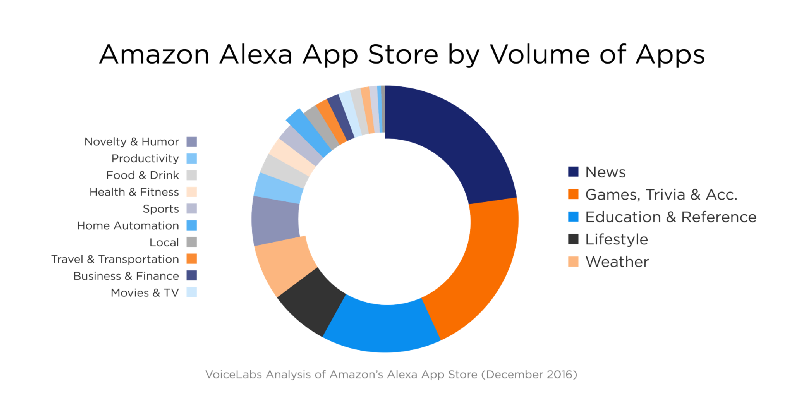The Power of Voice
Since buying an Amazon Echo, I have noticed how much my routine has evolved to include the use of voice commands.
Since buying an Amazon Echo, I have noticed how much my routine has evolved to include the use of voice commands.
To be honest, when I my voice-first device arrived, I was not sure what I would use it for. I scrolled through the Alexa Skills store, trying to imagine how I would use each skill and initially only activating a handful of skills that I saw myself using.
After a few days the novelty wore off and I only used Alexa as an alarm clock and speaker for music. While these were useful applications, it still felt like a voice-first device was something I could live without.
A month or two later, however, my perspective started to change. I noticed how I was starting to use voice commands for an increasing number of tasks — to listen to the news, to search for a celebrity’s biography, to meditate, and to create lists.
I have also started to use Siri when I am outside of my home. I ask Siri to dial friends and family while I’m in the car. I ask her to set timers and alarms and to look up the weather.
I also realized that having the ability to voice trigger certain commands for certain tasks was evolving my expectations around others that I had not yet connected to my voice-first device. I found it annoying to walk over to turn the lights off, to book my bike for spin class on my laptop, or to fumble around for my phone before bed to check when my first meeting would be the next morning.
That’s when I realized just how significant the opportunity is for a voice-first approach — it is a total game changer. These products are conditioning me to be even more impatient with any friction or delay in my daily routines, the way Uber has completely shrunk the time I am willing to wait between when I want a ride to when the car pulls up.
Voice-first products are changing how I interact with technology and what I classify as a seamless user experience. And I know I’m not alone. Amazon sold 9x more Echo devices over the 2016 holidays than in 2015. Device penetration has been growing over 250% per year since 2015, and VoiceLabs estimates that there will be 24.5 million in circulation by the end of this year.
In addition, the number of skills on the Alexa store has exploded in the last 9 months, surpassing 10,000 skills in February 2017, up from 1,000 in June 2016.
Moreover, consumers are finding value in these skills across a variety of categories, and these opportunities will continue to increase. As the chart below indicates, today music and books are the most popular use cases, with smart home and gaming tied for second.
Given Jeff Bezo’s excitement around games, the number of skills in this already high growth category will continue to surge. I also believe that sports, health & fitness, and food related skills will continue to increase in popularity. Unlike games, which make up almost 20% of the skills available today, the options in these other categories are relatively small. As developers create additional skills for these use cases, I am confident their share of Alexa usage will grow as well.
As voice-first products and services continue to shift our consumer behavior, I am confident that we’ll see also new categories emerge that we didn’t expect. I’m excited to see what developers create and I look forward to being first in line to give them a try.








